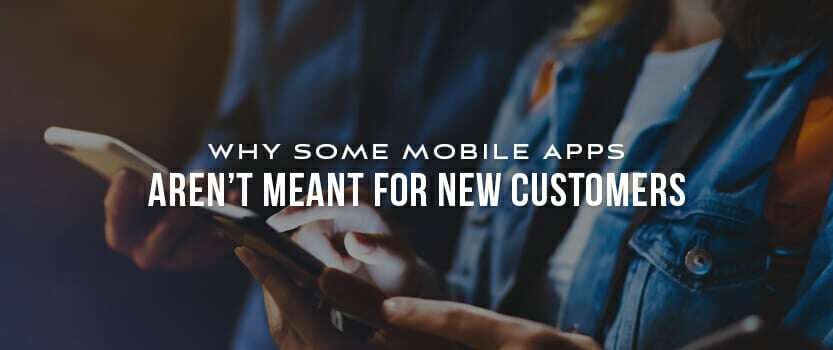2 min read
Is Your Construction Website Mobile-Friendly? Here’s How to Optimize It.
Is your website mobile friendly? Your construction website is like a house: it should be well-built, functional, and visually appealing. ...
Improve customer satisfaction and increase operational efficiency with a client portal.
Take control of your operations with customized software solutions.
Help your in-house dev team get more done, faster with our Midwest-based experts.
With the rise of smartphone ownership and mobile app availability, it’s become a common practice to rely on smartphones for internet access. And when you add Google’s website ranking preferences to the mix, it’s no surprise that businesses everywhere are making the move to improve their websites and build mobile apps. So how do you choose which one is right for your business?
We sat down with some of #TeamOnsharp to get insight. Keep reading to see what these guys have to say about choosing between mobile responsive websites and mobile apps:
Mike: Essentially, a mobile responsive website is a site that properly renders on any device you look at it on. This means that you don’t have to pinch and zoom to read things or go out of your way to consume the website’s content.
Jared: It also means that you don’t have to scroll left to right on a web page.
Mike: Some development teams will choose to include or exclude content when they make their websites mobile responsive, but we don’t. As long as your website is developed properly, it should be a similar, if not the same, experience as on a desktop.
Mike: They should be completely exclusive. A lot of people were taking responsive websites, putting an app wrapper around it, and trying to put it in app stores—but you can’t really do that anymore. Chances are if you try to do that, it won’t get approved in the app store. Apps should be made for a specific use or purpose, not just for information. They should do things that a website can’t easily accomplish or do at all.
Joe: You would need an actual mobile app if you want to take advantage of the hardware of the phone, like the camera, location services, storage, and stuff like that. To me, a mobile app is a tool with a specific purpose. It might have multiple uses, but they are there.
Mike: Consider banks. They have websites where you can check your account balance and things like that, but then most have an app where you can find ATMs using your location, deposit checks with your camera, or transfer money easily from one account to the other. You can’t do that on their websites.
Joe: Mobile apps have speed. They’re a more specific view that doesn’t need to load a bunch of extra assets or images. With a mobile responsive website, menus are typically in a standardized place, and content is sized so it’s easily readable or consumed. To increase the overall speed of a site or page, a smart developer will programmatically detect device dimensions and capabilities and adjust resource loading accordingly.
Mike: People also tend to avoid cramming a bunch of marketing stuff into their app. It’s more clean cut and not as bogged down. For most businesses, if you have a knowledgeable web developer, it’s easier to build a mobile responsive website, while building the app takes a specific set of skills to do. From a user experience perspective, in my opinion, websites are meant to market; apps are tools.
Jared: It’s all about what you need.
Joe: If you have a website, it should be mobile responsive. Period. With web-based applications, it might not be as a big of a deal, but if it’s purely a marketing or eCommerce website, there’s no reason not to.
Mike: Looking at Posterboard as an example, we don’t have a mobile app, and we don’t really need one. You can easily use all of the features from a tablet or smartphone browser without an app. Or look at Instagram. It’s a web-based app, but the website isn’t the same experience. You need the mobile app in order to use the website. Its website is just the marketing arm of the app.
Joe: Again, in my opinion, an app is a tool. Building one just because you want one is not an effective use of time or resources.
Mike: That really comes down to determining if there’s a roadblock to doing what it is you need to do with an app or a website.
Joe: Use the right tool for the right job. Consider this: you wouldn’t want to use a screwdriver to nail something together. You could, but it’s not the right tool and wouldn’t be an effective use of your time. It’s the same with building a mobile app.
Jared: It depends on circumstance and time, too. If you were a bank, and you still didn’t have either of these things in 5–10 years, I’d say get an app before getting a website because it’s what the situation calls for. Your users would probably want the features built into their phones first.
Jared: Banks. People always want to have access to their financial information.
Mike: Look at the apps you have on your phone and the apps that you use often. Obviously, anything social media-related should have an app for it. If you’re an eCommerce type business, I’d be more inclined to have a mobile responsive website.
Mike: If the only purpose of your website is to be on the internet for marketing purposes, there’s no reason to have a mobile app, so it’s really situational.
Joe: It’s not a good reason to get a mobile app just because everyone else has one. Having one should be an easier way for a user to consume or use the products and services you offer.
Mike: If you build a mobile app, don’t try to put a lot of things into it. Just try to make it something someone is going to be able to use as a tool. Apps shouldn’t be trying to sell—they should be geared toward existing customers and making their lives easier.
Joe: Mike has the right idea. Try not to pile on too much at once. Build something that’s basic enough to get the job that you want done. Build an app that is functional, easy to use, and something people find value in. People will tell you what they want once they use it. Popular requests will come, and all you can do is listen at that point.
Mike: The ease of push notifications also matter.
Joe: Yeah, I agree. Use the parts of your phone that are built into it. Take advantage of the platforms you have available and build something that is compatible.

2 min read
Is your website mobile friendly? Your construction website is like a house: it should be well-built, functional, and visually appealing. ...

2 min read
There’s no excuse in today’s digital world: your banking website must be mobile responsive. In fact, most banks have an app and a...

3 min read
Though mobile apps continue to enter the marketplace at a roaring pace, data from Mobile App Daily shows that an average user only uses 9...
